- Home
- Michael Dobbs
Churchill's Hour Page 5
Churchill's Hour Read online
Page 5
The previous September, at the most crucial hour in the Battle of Britain, Churchill had driven with Pamela and Clemmie from Chequers to the RAF’s headquarters at Uxbridge in order to see for themselves the progress of the extraordinary conflict that was taking place above southern England. They had watched in the operations room as, one after one, squadrons of Spitfires and Hurricanes had been thrown into the sky against the onrushing enemy. There came a moment during that afternoon when not a single aircraft was left in reserve, when it would have taken just one more wave of bombers to have swept Britain aside. But it hadn’t come.
Afterwards, as they had driven back towards Chequers, Churchill had seemed buried deep within his own thoughts, exhausted, his chin sunk low upon his chest. After a while he had stirred and turned to Pamela.
‘Do you keep a diary?’
‘No,’ she had replied, startled.
‘You should. These are moments that, if we survive, we should allow no one to forget.’ Then he had fallen back into silence for several minutes, until the chin came up once more. ‘Anyway, if you don’t have a diary, what the hell will you live on when you get tired of Randolph?’
‘I shan’t get tired of Randolph.’
‘Everyone gets tired of Randolph,’ he had told her.
But she hadn’t. Randolph was a handful, of course, garrulous, bibulous, fond of reading the histories of Macaulay to her in bed. When she had visited him at his commando training headquarters in Scotland, she’d been alarmed to discover that he had run up a hotel bill of gargantuan size, but he was unabashed. ‘Morituris bibendum,’ he had hollered, which he loosely translated as: ‘Those who are about to die deserve a bloody drink.’
Anyway, he told her they could afford the occasional drink, and a little light gambling, too. It was only amongst his close friends, he explained, and he won more than he ever lost. After the baby had been born he’d found them an old rectory in Hertfordshire, rented for a pittance with the help of his father’s name. It was their first home; Pamela loved it, and him. When he was there the walls echoed with excitement, and when he was away she felt nothing but draughts and missed him with a power that at times astonished her. During the day she would wander around the house in one of his old uniform jackets, smelling him, touching him, trying to imagine him beside her, and at night she would turn off the gas fire and go to bed early under a pile of blankets and with a copy of Macaulay beneath the pillow.
She missed him all the more when she discovered she was probably pregnant again. Christmas at Chequers.
She was young, not yet twenty-one, lacking in experience of things, but she wanted so much to show him that he had found the best wife, mother and housekeeper he ever could.
Then his letter arrived. It offered an apology, of course, and a renewed vow of eternal self-denial which this time, he told her, he meant. But the self-denial Randolph required was, in truth, all on Pamela’s part. He sent her detailed instructions that she was to pay off his gambling debts by instalments of perhaps ten pounds a month, to a list of names that seemed endless. He didn’t suggest any way in which this sum might be raised. It was to be her problem—and exclusively her problem, for he forbade her to breathe a word of this to his father. He made it sound as though somehow it were all her fault.
Three days after the letter arrived, the bleeding started, accompanied by excruciating pain that left her bent in two and crying for mercy. It was only with the greatest difficulty that she made it to the bathroom, bleeding profusely.
She had been pregnant; she was no longer. And would never be again.
Yet another American had appeared on Churchill’s doorstep. In the last few weeks the Prime Minister seemed to have done little but charge up and down the stairs of Downing Street to the tune of ‘Yankee Doodle’, but he didn’t complain. It was far better than being marched up and down Whitehall to the sound of a glockenspiel.
John ‘Gil’ Winant had been sent to replace the excruciating Joe Kennedy as Ambassador to the Court of St James’s. Kennedy had been as crooked as a fish hook, but the new man was of altogether finer construction, the sort you could invite to dinner without having to count the spoons. He was a tall, brooding figure, painted with an expression of profound earnestness. Some thought he looked a lot like Abraham Lincoln, but whereas Lincoln was a wordsmith as glorious as any his country had produced, London had just discovered that Winant was a lamentable public speaker. He had delivered his first address in Britain, to a luncheon of the Pilgrims’ Club, an Anglo-American friendship society. The members of the audience assumed the sentiments in the speech were excellent, but no one could tell, for it had been impossible to make out a word he had said. They had hoped for someone of a different cut to the mean-mouthed outpourings of Kennedy, but this was going to the other extreme. Was America’s new voice to be no more than a whimper?
Churchill had attended the lunch. As they were leaving the Savoy Hotel, he decided to take matters into his own hands and grabbed Winant’s arm.
‘Your Excellency, a fine speech.’
‘Did you truly think so?’
‘Worthy of many plaudits—and a little celebration. Do you have time for several whiskies?’ And before the ambassador could muster an audible answer, he was being led towards the Prime Minister’s car.
‘That is on two conditions, of course,’ Churchill continued. ‘The first is that we become the greatest of friends. As you know, I am half American, on my mother’s side. A Jerome from New York. I even lay claim to a little Iroquois Indian blood, at least an armful, I’d say.’
‘Half American. But I suspect entirely English,’ Winant returned, smiling. He had a most attractive smile, his dark, deep-set eyes glowing with sincerity. His hair was unkempt, a little like a distracted schoolboy, while his suit was crumpled and sat awkwardly on his gaunt frame—as did his marriage, so rumour had it. Clearly he lacked a woman’s touch.
‘The second condition I insist upon is that you call me Winston, and I be permitted to call you Gil. No formality between us, no barriers. We are brothers. I want to like you very much indeed.’
That, as Churchill knew, might be no easy undertaking. Winant had a long career as a liberal activist and labour organizer that seemed to pit him against so many of the interests Churchill’s life had embraced. ‘Doesn’t matter,’ Churchill had growled, ‘so long as he hates Hitler.’
They drove to the rear entrance of Downing Street, which nestled against the parade ground of Horse Guards. There were many signs of recent bomb damage—hurriedly filled holes, empty windows, scarred buildings, blasted trees in the park. A long section of the garden wall at the back of Downing Street had been toppled, leaving bricks lying in forlorn piles. A gang of workmen was carrying out repairs. As soon as his car had stopped, Churchill sprang from his seat and began clambering over broken bricks and through piles of sand until he was in the midst of the workers. He seemed not to notice that he was standing in a puddle of cement.
‘My dear Gil, let me introduce you to the men who are the backbone of the British Empire. The bricklayers!’ He thrust his stick at one of the men in exchange for a trowel, and then began loading cement and bricks upon the new wall, eyeing their line, tapping them to a level, and all the while puffing great clouds of smoke from his cigar as he chatted in great animation to the workers. They gathered closely around him, laughing at his jests, shouting their encouragement, and taking care to keep him supplied with fresh bricks.
‘You see, Gil, I, too, am a bricklayer, a member of the Amalgamated Union of Building Trade Workers. And proud as punch of it. Lady Astor, one of your American compatriots, a woman with a notoriously sharp tongue, once told me that I was as common as muck. I was able to tell her that she was entirely wrong, that I was not as common as muck—but as common as brick. And I had a trade union membership card to prove it.’
He was playing them like an audience at a music hall.
‘Ah, I am forgetting my manners,’ he said when at last he stepped back. �
�I must introduce you men to my very great friend, Mr Gil Winant. He is the new American Ambassador, which makes him your great friend, too.’
‘Last one wasn’t, was he?’ a voice sounded from the back of the huddle.
‘On the contrary, I was very much attached to him,’ Churchill said, smiling. ‘Like my appendix.’
‘But you ‘ad that cut out years ago,’ the voice came back, to general laughter.
‘And you, sir, will get me into a great deal of hot water making baseless accusations like that,’ Churchill replied, grinning broadly.
They cheered him as he stepped into his garden through the hole in the wall. He turned to wave his stick at them. ‘Londoners—are we downhearted?’
‘No!’ they cried as one.
It was a piece of theatre, typical Churchill, the sort of thing he’d made sure his other visitors like Hopkins and Willkie had witnessed. Reality wasn’t as simple as that, of course. For every Londoner who could still summon up the spirit of defiance, there were those who were gradually weakening, being ground down by yet another winter of war. In his heart, Churchill knew they would not go on—couldn’t go on—through another winter unless somehow he could find new hope to sustain them. But he couldn’t even feed them properly. The shipping losses in the Atlantic were enormous and the prospect of starvation still hovered over every meal. He had to give them hope, some taste of victory, not an endless diet of setback and evacuation.
Every week brought a new nightmare and another battlefield. So far the Balkans had remained undisturbed, but it was about to be turned into a slaughterhouse. Hundreds of thousands of German troops were massing to swallow up Yugoslavia and Greece, taking advantage of feuding local leaders who, rather than taking on the Wehrmacht, seemed more intent on fighting each other—‘Cvetkovic, Markovic, Simovic, Subotic and every other damned sonofabitch,’ as Churchill had complained in frustration. Meanwhile a new commander had arrived to breathe fresh life into the German campaign in the North African deserts. Someone called Rommel.
And the Japanese, that unfathomable, unknowable race on the far side of the world—what in damnation were they planning?
His concerns pursued him everywhere, through his days, through his dreams, no matter what he pretended to the bricklayers. By the time he had crossed the garden and reached the back door of Downing Street, they were weighing heavily on his heart once more. He threw open the door and kicked off his shoes.
‘Sawyers! Where are you, man?’ he shouted. ‘Stop hiding and help. Some idiot has poured cement all over my shoes.’
They sat in a small sitting room that was cold and bleak. The curtains were dusty, the windows taped over, some of them cracked, but Churchill still preferred to spend his daylight hours here in 10 Downing Street than entombed in the underground bunker at the nearby Annexe. It was a small reminder of how things used to be.
The American was beginning to warm up and Sawyers hovered attentively, ready to refill his glass. Shy and uncertain as Winant sometimes looked, he was no fool. He had a long and distinguished public career behind him, much of it in New Hampshire, where he had been elected governor three times. They called it the Granite State; evidently they liked the quiet touch.
‘I welcome you to London, Gil, with all my heart. It’s a pity that the medical condition of the President makes it so difficult for him to travel, but that makes your position here of even greater significance. I don’t think it an exaggeration to say that a whole world might depend upon it. It’s one of my great sorrows that I have not yet met Mr Roosevelt, but, in you, I know I have a friend who will bring us together in thought as well as deed. You must be my mirror into his mind.’
The words struck Winant as strange because, of course, Churchill had met Roosevelt, many years before. The old man seemed to have forgotten, but Roosevelt hadn’t. It had been 1918, at an official dinner in London. The occasion hadn’t been an unqualified success; Churchill had been both voluble and a little vulgar, and when Roosevelt returned from the dinner he told his colleagues that Churchill was nothing less than ‘a stinker’. It was a story that Joe Kennedy had paddled all around Washington, and so keenly that Winant was surprised the old man hadn’t been reminded of it. But then, given the nature of the story, it was perhaps no surprise at all.
‘I have very clear instructions, Prime Minister—forgive me: Winston,’ the ambassador said as the valet poured more whisky. ‘The President has instructed me to tell you that we shall do everything within our power to help you win this war.’
‘That is more than I had dared hope—’
‘Short of declaring war ourselves, of course.’
‘Ah.’ Churchill thrust his own glass towards Sawyers.
‘The Lend-Lease Bill will be through Congress in a few days; you know the President’s set to sign it. Soon we’ll be able to send you all those tools you asked for to finish the job.’
The ambassador had intended the words as encouragement, but for a moment Churchill’s expression suggested he’d just smashed his finger with a hammer.
‘You know, Winston, your broadcast came as a profound relief to many Americans. Ridiculous, I know, but there are still those who suspect you of wanting to find some means of getting us involved in another European shooting match.’
A gentle warning shot across the bow. There were many in the United States who still gave kitchen space to tittle-tattle that Churchill was bent on repeating the history of the last war, when a reluctant America had been dragged into the conflict three years after it had started as a result of the sinking of a number of ships by U-boats. The most notable loss had been the passenger ship Lusitania. More than a thousand souls had gone down with her, many of them American, and hundreds of thousands were to follow. Some blamed Churchill personally for this, suggesting he’d as good as arranged the U-boat attack in order to shame the United States out of its isolation. Many Americans still sat round their fires talking of the untrustworthy English.
Churchill stirred uneasily, eager to move on. ‘What of the Far East, Gil? It has been occupying my mind. We cannot rest content while Japan conducts a campaign of slaughter and genocide that is every bit the equal in savagery to Hitler’s.’
‘But in China.’
‘Such savagery never knows its bounds. It will not confine itself to China. Where will it turn to next? To French Indo-China? To the Dutch East Indies? To our own colonies of Hong Kong and Singapore, even India? There are vast riches waiting for them there.’
‘Which is why, presumably, they are already colonies. And why the European powers would fight once more to retain them.’ Winant seemed so much more composed face to face than in front of an audience. And he knew his master’s mind. Churchill decided he would be a most effective ambassador, and was not a man he should underestimate.
‘I must tell you, Gil, in all seriousness, what I have written to the President.’ Churchill turned to his glass, sipping, swirling, as though trying to wash away some foul taste, before staring at the American. ‘I told Mr Roosevelt that if the Japanese were to attack our Far Eastern possessions, we would not have the military capability to resist them. No matter what I might be forced to say in public to shore up the general morale, you and your President must be under no illusion. On our own, we could not win such a war.’
On their own, the British could not win…Little wonder, Winant thought, that the old man was driven to drink.
‘That’s why I have asked the President if he will send some part of the US Pacific Fleet to Singapore,’ Churchill continued. ‘As a sign that an attack on British possessions will not be tolerated. No words, no great declaration, no threats, just a symbolic gesture that even the Japanese will understand. A few American ships in Singapore could prevent the outbreak of the most terrifying tempest across the whole of the Far East.’
‘I’m afraid the President can’t agree to that, Winston,’ Winant said quietly, as though the softness of his voice might in some way diminish the force he knew his words would hav
e on Churchill.
‘But…’ For the briefest of moments Churchill paused, buried beneath the weight of his disappointment. ‘My dear Gil, I’m not talking of a vast armada, only a few ships, even a couple of rust buckets would do, so long as they fly the Stars and Stripes…’
‘I’m sorry.’
‘It could prevent catastrophe—’
‘Our commitment is to Britain, not to its colonies. I think Mr Roosevelt would argue—and with considerable force—that it’s not the job of the United States to steam around the world shoring up other people’s empires. We don’t like empire, no matter whose flag it flies.’
That was Roosevelt speaking. The President came from a long line of radicals and revolutionaries; he loathed all empires and the British Empire as much as any—a kingdom of pigsticking and polo, he’d been heard to call it. There was no way he was going to shed American blood for that.
Churchill couldn’t afford to be diverted. ‘But if the Japanese were to control the whole of the Far East they would become the most mighty power in the Pacific. Surely America could not tolerate that?’
‘The Pacific is even wider than the Atlantic, Winston—and one hell of a long way from the Hudson.’
‘In his State of the Union Address only a few weeks ago your President spoke of his ambition to lead the world from fear.’
‘And you know what he also said to me, Winston? That the most terrifying thing in the world is to be a leader who looks over his shoulder and finds no one there.’ Winant leant forward from his armchair, as though trying to close the distance between them. ‘He hears you, Winston. But he also has to listen to the American people who are suspicious of everything to do with this war. You know, all the while Congress has been debating Lend-Lease, women have been marching outside carrying banners accusing the President of wanting to murder their sons. That hurt him, down deep. They even hanged his effigy. There’s a lot of steam behind the no-war protests, Winston, they don’t want any more American boys to die in Europe or anywhere else. Their voices are powerful. And Mr Roosevelt has had to listen.’

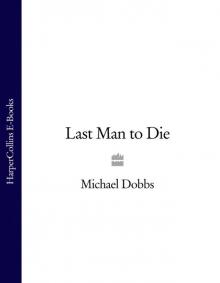 Last Man to Die
Last Man to Die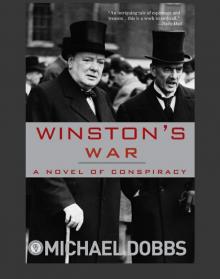 Winston's War
Winston's War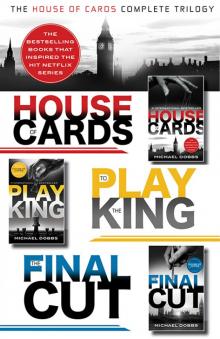 The House of Cards Complete Trilogy
The House of Cards Complete Trilogy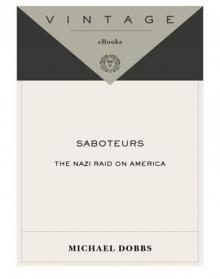 Saboteurs
Saboteurs The Touch of Innocents
The Touch of Innocents WC02 - Never Surrender
WC02 - Never Surrender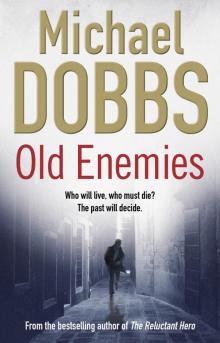 Old Enemies
Old Enemies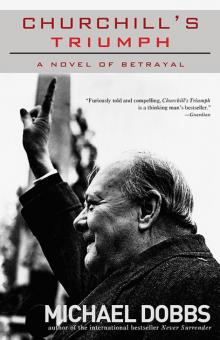 Churchill's Triumph
Churchill's Triumph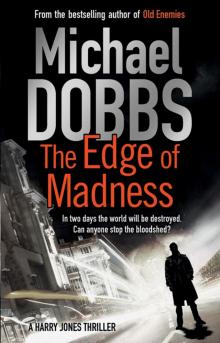 The Edge of Madness
The Edge of Madness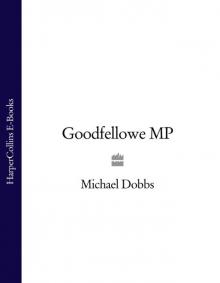 Goodfellowe MP
Goodfellowe MP The Final Cut
The Final Cut Whispers of Betrayal
Whispers of Betrayal Churchill's Hour
Churchill's Hour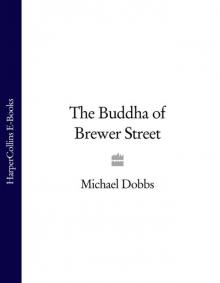 The Buddha of Brewer Street
The Buddha of Brewer Street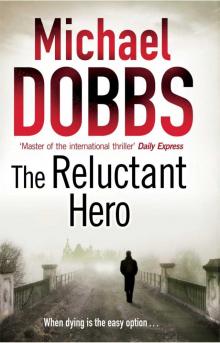 The Reluctant Hero
The Reluctant Hero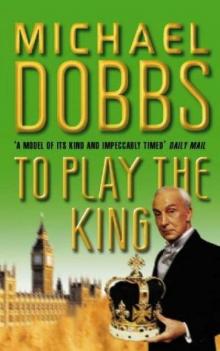 To Play the King
To Play the King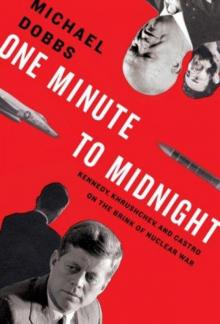 One minute to midnight
One minute to midnight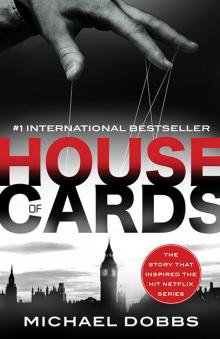 House of Cards
House of Cards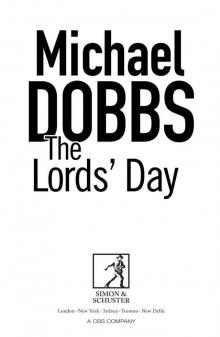 The Lords' Day (retail)
The Lords' Day (retail)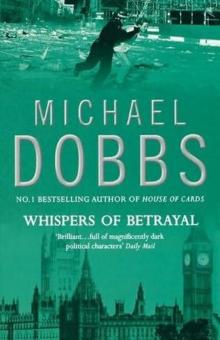 Whispers of betrayal tg-3
Whispers of betrayal tg-3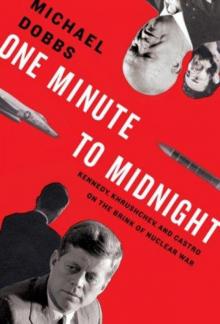 One minute to midnight: Kennedy, Khrushchev, and Castro on the brink of nuclear war
One minute to midnight: Kennedy, Khrushchev, and Castro on the brink of nuclear war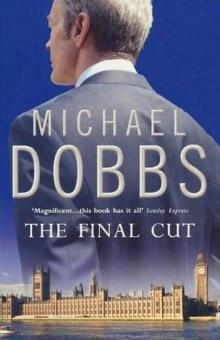 The Final Cut fu-3
The Final Cut fu-3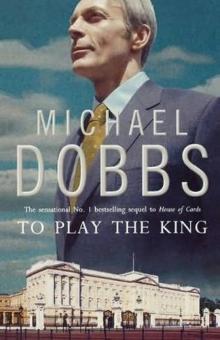 To play the king fu-2
To play the king fu-2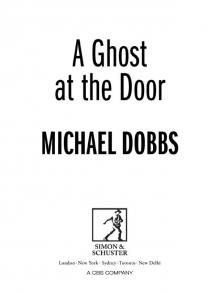 A Ghost at the Door
A Ghost at the Door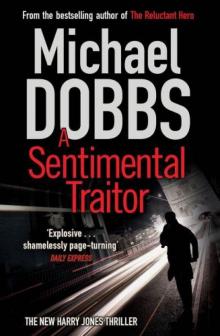 A Sentimental Traitor
A Sentimental Traitor